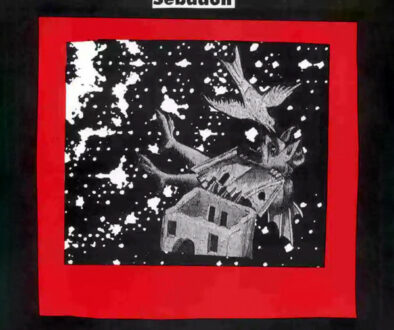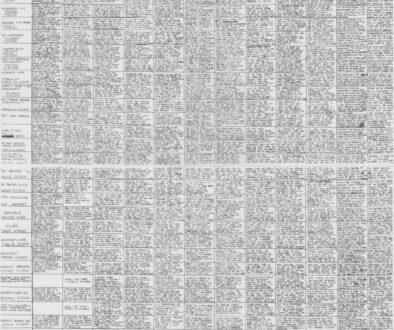All Towers Men Build a Lesson Teach (Book Three, Part 9: Arkham Aslyum, The Tower)
Previously in The Last War in Albion: Grant Morrison made their debut and early reputation in the US with a relaunch of DC’s Animal Man. But soon after came the comic that would establish them as a superstar.
Like Babel, meant to heaven reach
All towers men build a lesson teach
Lightning, descending from the sky
Reminds man there’s but one most high.
-Alan Moore, Promethea
Morrison pitched what would become Arkham Aslylum at the same February 1987 meeting where they successfully pitched Animal Man. The exact terms in which Morrison sold it are not entirely clear, but their earliest allusion to it in a January 1988 interview described it as, “you know the asylum from Batman stories? – yeah, well it’s April the first and the inmates take over the Asylum. They are holding hostages, and they demand that Batman be sent in because he belongs in a nut-house with the rest of them! So it’s a sort of psychological thriller, with Batman going through all sorts of mental and physical cruelties at the hands of his worst enemies. The story draws its inspiration from the medieval Feast of Fools and the World-Turned-Topsy-Turvy ceremonies when the rich would swap places with the beggars, criminals would become clergy and they’d all enjoy a day-long orgy of role-playing. So we look at all the familiar Batman paraphernalia from the viewpoint of these insane villains.”

The project faced a number of delays—Morrison claims it “took a year to research and was written in one fevered month in 1987, generally late at night and after long periods of no sleep.” Given the pitch date, a late 1987 composition seems most likely. By early 1988 Dave McKean, a fellow Brit who had pitched alongside Neil Gaiman at the same 1987 meeting, had been put on art duties. McKean, however, was doing a three-issue Black Orchid miniseries (with 48-page issues) and the first ten covers of Sandman at the same period, and so was slow in getting the 128 pages of Arkham Asylum finished. A final delay from Warner Brothers corporate to coordinate around the release of the 1989 Batman movie meant that the comic did not see light until October of 1989, by which point Morrison was well into both their Animal Man and Doom Patrol runs.
From DC’s perspective, Arkham Asylum was clearly a spiritual successor to Moore and Bolland’s The Killing Joke—a bespoke Batman story by ambitious British creators. But where Moore and Bolland were known properties teaming up on one of DC’s most popular characters, Morrison and McKean were unknowns being launched to prominence with a major Batman project launched so as to coincide with a movie.

Given this, there is a certain perversity to the book, which sees Morrison at their most ruthlessly obscurantist, crafting a story that was absolutely drenched in occult symbolism and references both literary and philosophical. The story was that of a dark night of the soul for Batman—a transformative and cathartic experience in which he descended into a personal hell and emerged stronger for it. This, at least, is clear in the comic, which sees Batman speaking dissociatively as he prepares to enter the asylum, telling Commissioner Gordon, “Batman’s not afraid of anything. It’s me. I’m afraid I’m afraid that the Joker may be right about me. Sometimes I… question the rationality of my actions. And I’m afraid that when I walk through those asylum gates… when I walk into Arkham and the doors close behind me… It’ll be just like coming home.”

Within the dense and chaotic labyrinth of symbolism Morrison attempted to construct, Arkham Asylum itself represented the Tower. This appeared among the “small number of symbolic elements, which combine and recombine throughout, as if in a dream: The MOON, the SHADOW, the MIRROR, the TOWER, and the MOTHER’S SON” that they elucidated when annotating their script for the 15th anniversary edition of the graphic novel. The specific phrasing, of course, invokes the Tarot, and Lady Freida Harris’s rendition of the card for Aleister Crowley’s Thoth Tarot makes a prominent appearance early in the comic as Batman and Ruth Adams, one of the psychotherapists at Arkham, discourse on her unorthodox treatment of Two-Face, which has involved moving him from the binary choice of a two-sided coin upwards to a die and, eventually, the Tarot, allowing him a wider range of choices. This has come with unfortunate side-effects; Harvey Dent is now paralyzed by indecision and frequently shits himself. Batman, not unreasonably, suggests that this constitutes destroying his personality, to which Adams retorts, “Sometimes we have to pull down in order to rebuild, Batman. Psychiatry’s like that.” As she does, McKean moves in close on Two-Face constructing an elaborate house of cards, focusing on him laying down Harris’s version of the card. (To state the obvious, if only to illustrate the sort of symbology Morrison is engaged in here, the house of cards is itself a tower.)

The corresponding text points towards what might be called the card’s most vulgar meaning; Waite, in his cavalierly concise listing of divinatory meanings for the cards describes the card as “Misery, distress, indigence, adversity, calamity, disgrace, deception, ruin. It is a card in particular of unforeseen catastrophe.” The reference to rebuilding appears nowhere in Waite, but is common among those using the Tarot to “do readings” for people, where the “destroy to rebuild” canard is typically trotted out to counter its obviously disconcerting nature. Morrison would surely have been aware of the practical necessity of this sort of diplomacy from their “mod shaman” period in the Mixers, when, as they recount it, “I used to go to this place called the Rock Garden. And it would just be, I’d carry my tarot cards around, so if anybody wanted advice I’d pull out the Tarot cards and do stuff.” Their subsequent insistence that “I didn’t even read Tarot cards, I just used to wing it” is difficult to credit; they’d had a Tarot deck since their uncle gave them Harris’s deck in 1979 and were surely familiar with the card meanings. More broadly, there does not exist a person who has done even semi-regular Tarot readings who has not deployed the phrase; much like the reassurance that Death is not always a negative card, it is simply part of the fabric of the Tarot reading.
Given Morrison’s wide use of occult symbolism in Arkham Asylum, it’s clear they’re being a bit flippant with their introduction of the concept within the comic. Even Waite goes into further depth in The Pictoral Key to the Tarot, offering two paragraphs of exegesis in which he describes it as signifying “the materialization of the spiritual world,” setting up a debate between Paul Christian (who he consistently has little time for, elsewhere accusing him of peddling “rubbish”), who describes the card as “the downfall of the Spirit that attempts to discover the mystery of God” and Grant Orient, who describes the card as representing “the rending of the House of Doctrine in the heart of the individual” and “the ruin of the house of life, when evil has prevailed therein,” with Waite taking Orient’s side, adding the notion that it marks the razing of the House of Falsehood. (Orient also, notably, contains an early version of the “destroy to rebuild” hedge, noting that “the symbolism is that of a Divine act or consequence, and the power which destroys the Temple of God can rebuild it in three mystical days.”) The common theme, in any case, is one of hubris—ruin that emerges from the overreaching of man’s intellectual endeavors, with the implicit allusion being the Biblical Tower of Babel. Discussions of the demiurge seem almost inevitable.

For a variety of reasons, however, this is unsatisfying when applied to Arkham Asylum, in which the Tower is clearly defined not by its external destruction but by its internal structures. The most obvious clue, of course, is that Morrison employed the Thoth deck, which, in contrast to Pamela Colman Smith’s rendition of the card in which the Tower is struck by divine lightning from above, shows the Tower blasted by flames at its root. Crowley explicates this in terms of Hinduism, writing, “Shiva is represented as dancing upon the bodies of his devotees. To understand this is not easy for most western minds. Briefly, the doctrine is that the ultimate reality (which is Perfection) is Nothingness. Hence all manifestations, however glorious, however delightful, are stains. To obtain perfection, all existing things must be annihilated.” Crowley’s invocations of Asian traditions are, of course, always suspect (observe his implicit preening over his elevated western mind), but what is striking here is the sheer nihilistic joy of the thing. The problem as understood by Crowley is not the hubris of the demiurge misjudging the scale upon which he exists, but rather a fundamental instability in things—a collapsing from the root. The Tower falls not because God strikes it down, but because its fundamental nature is to collapse.

This, clearly, is a closer match for the sick and wounded architecture of Morrison’s Arkham—a place that is inherently, necessarily sick and broken, with old magics and madnesses bound into the stones themselves. In this regard it in many ways splits the difference between Waite and Crowley’s interpretations; the Tower is not a thing that collapses itself, but a tool for burning away illusions, for the destruction of the self. Two important points follow from this, both implicit in Crowley. The first of these comes in his extended discussion of, as he puts it, “the dominating feature of this card,” the giant eye at the top from which the traditional lightning bolt emanates not to strike the tower but to provide a backdrop to its fall, flanking itself with a Dove bearing an olive branch and a Serpent that Crowley describes as a “Lion-Serpent,” but which Harris draws so as to more closely resemble the Roman Glycon. Crowley associates this eye with the Eye of Horus, bringing about the end of the world, or, at least the end of the Aeon of Osiris, which Crowley credited himself with the end of. Within Arkham Asylum, this is evinced in Morrison’s boast in the 15th Anniversary Edition that the ending of the comic sees “the ‘80s Batman, purified and purged of negative elements, is returned to Gotham City to become the super-confident, zen warrior of my subsequent JLA stories.”
The second point arises in Crowley’s debate on what to call the card, debating between what he calls “the ancient title” of the House of God or his proposed but ultimately not fully embraced title of War. The implication is doubled. On the one hand, the name further highlights Crowley’s notion of a card that is about collapse, not destruction, war being necessarily taken in the context of the World Wars and the way in which they saw the ordered structures of imperialist Europe collapse inwards upon itself. On the other is simply the notion of the Tower’s destruction as emerging out of conflict.

It is this interpretation that is most relevant to Arkham Asylum, which, in deference to the superhero structure, envisions the Tower as the site of a great confrontation. This is made clear in a passage from Arkham’s journals describing an amanita muscaria trip during which he concludes that “Like Parsifal, I must confront the unreason that threatens me. I must go lone into the Dark Tower. Without a backward glance. And face the Dragon within.” In annotating their script Morrison associates this figure with “the Old Dragon of Revelations,” although it would be a mistake to treat Arkham Asylum as working strictly within Christian paradigms. All the same, Morrison’s account of this figure as “primal chaos, the R complex lizard brain” is a useful starting point.

It is impossible to look at any confrontation with this figure within a mental institution in 1980s popular culture without looking to Thomas Harris’s Red Dragon novel, featuring as it did a serial killer who believed himself to be transforming into a version of this biblical figure. There is no particular reason to think that Morrison was influenced by this text—its ascension to well-known pop culture via the cinematic adaptation of Harris’s sequel The Silence of the Lambs still lay several years ahead, and Morrison makes reference to reading it in a Drivel column published well after Arkham Asylum (it “wasn’t bad, except for the really crappy tacked-on shock ending and the way in which these books seem obliged to follow a strict and instantly recognisable formula.”) Nevertheless it demonstrates how common this specific figure is within depictions of murderous madness, illustrating the extent to which Morrison was not simply (or at least exclusively) drawing from a well of arcane mystical symbolism.
The Dragon is, of course, a natural counterpart to Harris’s rendition of the Tower, in which the fire spewed at the root of the Tower by a mouth, described by Crowley as “the jaws of Dis,” invoking the Roman Dīs Pater, who was a figure representing the wealth that emerges from the earth, both agricultural and mineral. [continued]





May 24, 2021 @ 5:03 pm
the reassurance that Death is not always a negative card
“Metempsychosis” might work better as a name, then.
the end of the Aeon of Osiris, which Crowley credited himself with the end of.
My late cousin Ezra once said that the Christian era didn’t come definitely to an end until 17 years later (☉︎ in 6° Scorpii, ☽︎ in 23° Librae, 0ⅹⅴⅰⅰ).
There is no particular reason to think that Morrison was influenced by [Red Dragon]—its ascension to well-known pop culture […] still lay several years ahead
Though its own cinematic adaptation, Michael Mann’s Manhunter, had come out the year before the pitch meeting.
May 25, 2021 @ 2:08 am
Said adaptation, it should be noted, cut the Blake stuff out.
May 29, 2021 @ 10:13 am
…and, incidentally, also cut out the really crappy tacked-on shock ending Morrison objected to.
May 26, 2021 @ 9:06 am
This is a Morrison work I’ve felt no urge to revisit. The word that comes to mind is “overwrought”:
in a state of nervous excitement or anxiety. Similar: tense, agitated, nervous, on edge.
(of a piece of writing or a work of art) too elaborate or complicated in design or construction. “a pseudo-Gothic church far too overwrought for such a small town” Similar: over-ornate, over-elaborate, over-embellished.
Two things. One, there was an immense amount of hype around “Arkham Asylum” when it first came out. There was a huge ad campaign, and for months it was only available in a pricey hardcover edition. Yet — curiously — it has mostly faded out of subsequent Batman lore. “The Killing Joke” has continued to inspire adaptations and retellings and retcons; creators are still responding to it. “Arkham Asylum”, not so much.
Two, Moore has turned up his nose at “The Killing Joke”, saying — I paraphrase — that it was a waste to use advanced modernist storytelling techniques on what was just a Batman story. I actually think that’s a stronger critique here! “The inmates have taken over the asylum” is literally a lame cliche — it’s the sort of thing your Republican uncle mumbles to himself while watching Fox.
Okay, cliches can be the foundation of good stories. Can you build a decent Batman story around this? Sure — in fact, there’s an extremely excellent video game. The Arkham Asylum game, released in 2009, won a crapton of awards, spawned multiple sequels and a prequel, and is still considered one of the best action video games of all time.
(Fun fact: Morrison played this game and absolutely loved it. In an interview, he claimed it as an inspiration for his “Batman Incorporated” series.)
But the video game barely relies on occult symbolism; it’s a pretty straightforward superhero adventure story. And, honestly, the comic would have been better as a relatively straightforward story too. This feels… try-hard. If you want to maintain the metaphor of the War, then Arkham Asylum was a tactical error: a misguided attempt to fight Moore on his own ground, with his own weapons.
Doug M.
May 29, 2021 @ 10:45 am
“Overwrought” is exactly right. I remember the first time I acquired and read “Arkham Asylum” – I was either in my late teens or early twenties – and I liked it enough. But while my position over the years on other “prestige” Batman stories of roughly the same vintage (“The Dark Knight Returns,” “Batman: Year One,” “The Killing Joke,” “A Death in the Family,” “Batman: The Cult,” etc) has remained more or less the same, “Arkham Asylum” just doesn’t do anything for me when I revisit it. What I found “cool” about the book when I was younger seems messy and pretentious to me now. (If we’re talking stories in which Batman gets knee-deep in Arkham, I’d take Alan Grant and Norm Breyfogle’s “The Last Arkham” over this one.) I honestly think Dave McKean’s art is the book’s redeeming feature, which is somewhat ironic as I’m pretty sure Grant Morrison originally wanted Brian Bolland to draw it. (Of course, had Bolland drawn “Arkham Asylum,” I’d probably say his art is the book’s redeeming feature…)
The comparison between this book and “The Killing Joke” is interesting, because for whatever faults Alan Moore himself has with “The Killing Joke,” it’s more or less a straightforward story pitting two archetypes against each other, and its disturbing content is designed to provoke an emotional response to the story as presented. Whereas with “Arkham Asylum,” I feel like the grotesquery and the shock value is all in the service of making you laud how coooool and edgy Grant Morrison is.
May 26, 2021 @ 12:17 pm
I’m genuinely ignorant on this: how revolutionary are McKean’s art and layouts in the context of comics? At least in the context of the War it seems a big leap (unless I’m forgetting something) in contrast with the more “classical” approach of stuff like Watchmen or Animal Man. Is it less incredible in light of the layouts of the Nick Fury stuff that’s lauded as having broken the classical conventions (that I also know very little about)? Will this change on how comics are drawn be covered on another chapter?
May 26, 2021 @ 12:34 pm
McKean has a substantive section on his style and work coming up, yes.
May 27, 2021 @ 10:14 am
“Arkham Asylum” made a huge impression on me when I first read it. I found its tense swirl of dark psychology and symbolism deeply moving. I have nothing to add to your brilliant analysis, except to thank you. Only you can make me read a long piece about a Tarot card and be happy that I did.